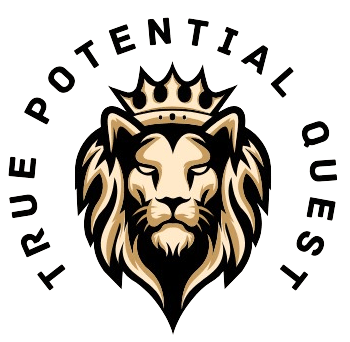
Introduction
Embarking on a journey of personal growth is akin to setting sail on a voyage of self-discovery and transformation. It’s a journey that leads us towards greater fulfillment, purpose, and joy in life. However, navigating this path can be daunting without a roadmap to guide us through the twists and turns along the way. In this comprehensive guide, we’ll explore the essential elements of a personal growth roadmap, delve into real-life examples of individuals who have successfully navigated their journeys, and provide insightful questions for self-reflection to aid you on your path to fulfillment.
Table of Contents
Understanding Personal Growth
Personal growth is the process of continuous self-improvement and development in various aspects of our lives, including physical, emotional, mental, and spiritual well-being. It involves expanding our self-awareness, challenging limiting beliefs, and embracing change as a catalyst for growth. To embark on this journey, it’s essential to first understand our strengths, weaknesses, values, and aspirations.
Embarking on a journey of personal growth is akin to setting sail on a voyage of self-discovery and transformation, where the vast expanse of the unknown beckons us with promises of greater fulfillment, purpose, and joy in life. Yet, amidst the allure of the horizon lies the daunting reality that navigating this path can be as tumultuous as it is rewarding. Without a roadmap to guide us through the twists and turns along the way, we risk losing our bearings in the turbulent waters of self-improvement.
We embark on an expedition to uncover the essential elements of a personal growth roadmap, charting a course towards the realization of our fullest potential. Through the lens of real-life examples of individuals who have successfully traversed their own journeys of transformation, we glean insights and wisdom to illuminate our path forward. From the resilience of Oprah Winfrey to the audacity of Elon Musk, these stories serve as beacons of inspiration, guiding us towards our own moments of epiphany and triumph.
But our journey does not end with mere observation; it extends into the realm of introspection and self-discovery. As we navigate the contours of personal growth, we pause to ponder thought-provoking questions that invite us to delve deeper into the recesses of our psyche. Questions that challenge our assumptions, ignite our curiosity, and awaken our dormant potential. Questions that serve as compass points, guiding us towards a deeper understanding of ourselves and our aspirations.
So, as we set sail on this voyage of personal growth, let us embrace the challenges, celebrate the victories, and trust in the power of self-discovery to illuminate our path. For in the journey towards fulfilment, the roadmap is not merely a guide; it is a catalyst for transformation, a beacon of hope, and a testament to the boundless possibilities that await us on the horizon of self-discovery.
Real-life Example: Oprah Winfrey
Oprah Winfrey’s journey from a troubled childhood to becoming one of the most influential media moguls is a testament to the power of personal growth. Through introspection and self-discovery, Winfrey identified her passion for storytelling and empowerment. By aligning her actions with her values and continuously challenging herself to evolve, she transformed her life and inspired millions around the world.
Self-Reflection Questions:
- What are my strengths and weaknesses?
- What values are most important to me?
- What do I aspire to achieve in different areas of my life?
Check this out Mastering Goal Setting: 5 Outstanding Strategies for Personal Development Triumphs
Setting Clear Goals
In the pursuit of success and personal fulfillment, setting clear goals serves as the cornerstone of many personal development philosophies. However, beyond the realm of material achievement lies a deeper spiritual dimension to goal-setting that can imbue our aspirations with profound meaning and purpose.
Goals provide direction and purpose in our personal growth journey. They help us focus our efforts, prioritize our actions, and measure our progress along the way. Setting clear, achievable goals that align with our values and aspirations is crucial for success.
Clear goals, when infused with spiritual intention, become more than just targets to strive for; they become sacred intentions that align with our soul’s purpose and higher calling. In the spiritual context, goals are not just about what we want to achieve externally, but also about who we aspire to become on a soul level.
Consider the example of someone who sets a goal to cultivate a daily meditation practice. On the surface, this may seem like a simple act of self-care, but from a spiritual perspective, it becomes a sacred ritual for connecting with the divine within. By setting the intention to deepen their spiritual practice, they open themselves to profound insights, inner peace, and spiritual growth.
Moreover, clear spiritual goals provide a pathway for aligning our actions with universal principles such as love, compassion, and service. Whether it’s committing to acts of kindness, cultivating gratitude, or seeking enlightenment, each spiritual goal becomes a stepping stone towards greater alignment with our highest selves and the divine.
In essence, setting clear spiritual goals is about co-creating our reality with the universe, surrendering to divine guidance, and trusting in the wisdom of the soul. It’s about transcending the ego’s desires and aligning with the greater purpose of our existence. So, as you embark on your journey of goal-setting, dare to infuse your aspirations with spiritual intention, and let them become sacred vessels for your soul’s evolution and fulfilment.
Real-life Example: Elon Musk
Elon Musk’s ambitious goal of revolutionizing transportation, renewable energy, and space exploration with companies like Tesla, SpaceX, and SolarCity exemplifies the power of setting audacious goals. Despite facing numerous setbacks and challenges, Musk’s unwavering commitment to his vision has propelled him to achieve remarkable feats that were once deemed impossible.
Self-Reflection Questions:
- What specific goals do I want to achieve in the short-term and long-term?
- How do these goals align with my values and aspirations?
- What steps can I take to break down these goals into actionable tasks?
Check this out Mastering Goal Setting: 5 Outstanding Strategies for Personal Development Triumphs
Cultivating Positive Habits – Pathway to Transformation
In the pursuit of personal growth and fulfilment, cultivating positive habits is essential for nurturing our potential and fostering lasting change. Michael Beckwith, a renowned spiritual teacher, emphasizes the transformative power of habits in shaping our reality and aligning with our highest potential.
Positive habits act as the building blocks of our daily lives, shaping our thoughts, behaviors, and ultimately, our destinies. According to Beckwith, these habits are not just actions; they are rituals that connect us to the divine within and elevate our consciousness.
Consider the practice of gratitude, a habit endorsed by Beckwith as a powerful tool for spiritual growth. By cultivating a daily practice of gratitude, we shift our focus from scarcity to abundance, from fear to love. This simple yet profound habit opens our hearts to the blessings that surround us, fostering a sense of appreciation and contentment in our lives.
Moreover, positive habits such as meditation, visualization, and affirmative prayer can deepen our spiritual connection and amplify our intentions. Beckwith emphasizes the importance of these practices in attuning ourselves to the frequency of our desires and co-creating our reality with the universe.
In essence, cultivating positive habits is not just about improving ourselves; it’s about aligning with the divine blueprint of our souls and embodying our highest potential. As Beckwith reminds us, every positive habit is a sacred act of self-love and self-care, a testament to our commitment to growth and transformation.
So, as you embark on your journey of cultivating positive habits, remember the wisdom of Michael Beckwith: “With every thought we think, every word we speak, and every action we take, we are co-creating our reality.” Choose habits that uplift your spirit, nourish your soul, and align with the vision of the highest version of yourself. In doing so, you’ll pave the way for profound transformation and fulfillment in every aspect of your life.
Real-life Example: Warren Buffett
Warren Buffett’s habit of continuous learning and disciplined investing is legendary in the world of finance. By dedicating time each day to reading and analyzing information, Buffett has accumulated vast knowledge and made sound investment decisions that have propelled him to become one of the wealthiest individuals in the world.
Self-Reflection Questions:
- What habits are currently supporting my growth journey?
- What habits are hindering my progress or holding me back?
- What new habits can I cultivate to align with my goals and aspirations?
Check this out Mastering Goal Setting: 5 Outstanding Strategies for Personal Development Triumphs
Embracing Failure as a Stepping Stone – A Crucible for Success
Failure is an inevitable part of the personal growth journey. Instead of fearing failure, embracing it as a valuable learning experience can propel us forward and fuel our growth. Every setback, mistake, or challenge presents an opportunity for self-reflection, resilience, and growth. In the journey of personal growth and achievement, failure is often viewed as an adversary to be feared and avoided at all costs. However, a shift in perspective reveals that failure is not the end of the road but a stepping stone to greatness. By embracing failure as a catalyst for learning and growth, we unlock the door to unprecedented success and fulfillment.
One of the most iconic examples of embracing failure is found in the story of Thomas Edison. Despite facing over a thousand failed attempts in his quest to invent the light bulb, Edison refused to be discouraged. Instead, he famously remarked, “I have not failed. I’ve just found 10,000 ways that won’t work.” Through each setback, Edison gleaned valuable insights that ultimately led to the creation of one of the most transformative inventions in history.
Real-life Example: J.K. Rowling
Before achieving monumental success with the Harry Potter series, J.K. Rowling faced numerous rejections and setbacks. Her manuscript was rejected by multiple publishers before finally being accepted. Rowling’s resilience in the face of adversity and her refusal to give up on her dream ultimately led to her becoming one of the best-selling authors of all time.
In conclusion, embracing failure as a stepping stone to success is not just about bouncing back from setbacks; it’s about leveraging adversity to propel ourselves forward. By reframing failure as an opportunity for growth and learning, we unlock the door to unlimited potential and pave the way for unprecedented success in every aspect of our lives.
Self-Reflection Questions:
- How do I typically respond to failure or setbacks?
- What lessons can I learn from past failures or challenges?
- How can I reframe failure as a stepping stone for growth and resilience?
Check this out Mastering Goal Setting: 5 Outstanding Strategies for Personal Development Triumphs
Nurturing a Growth Mindset – Unlocking Your Potential
In the pursuit of personal and professional growth, cultivating a growth mindset is paramount. Coined by psychologist Carol Dweck, a growth mindset is the belief that our abilities and intelligence can be developed through dedication and effort. By embracing this mindset, we empower ourselves to overcome challenges, learn from setbacks, and reach new heights of achievement and fulfillment.
At the heart of a growth mindset lies the recognition that failure is not a reflection of our innate abilities but rather an opportunity for growth and learning. Instead of viewing challenges as insurmountable obstacles, individuals with a growth mindset approach them with curiosity and resilience, seeing them as stepping stones on the path to mastery..
Real-life Example: Michael Jordan
Michael Jordan’s relentless pursuit of excellence on the basketball court was fueled by his unwavering belief in a growth mindset. He viewed every missed shot or defeat as an opportunity to learn, grow, and improve his skills. Jordan’s resilience and dedication to continuous improvement propelled him to become one of the greatest athletes of all time.
In essence, nurturing a growth mindset is about adopting a mindset of possibility and embracing the journey of learning and growth. By reframing failure as a natural part of the learning process and embracing challenges as opportunities for growth, we unlock our full potential and pave the way for unprecedented success and fulfillment in every aspect of our lives.
Self-Reflection Questions:
- Do I believe that my abilities and intelligence are fixed or can be developed?
- How do I respond to challenges or setbacks in my personal growth journey?
- What strategies can I employ to cultivate a growth mindset in my daily life?
Check this out Mastering Goal Setting: 5 Outstanding Strategies for Personal Development Triumphs
Practicing Self-Compassion
In the fast-paced and often unforgiving world we live in, practicing self-compassion is an essential yet often overlooked aspect of self-care and personal growth. Coined by psychologist Kristin Neff, self-compassion involves treating ourselves with kindness, understanding, and acceptance, especially in times of struggle or failure. By cultivating a compassionate attitude towards ourselves, we can foster greater resilience, well-being, and inner peace.
Embracing self-compassion means acknowledging our humanity and embracing our imperfections with kindness and understanding. As actress Ellen DeGeneres eloquently puts it, “It’s our challenges and obstacles that give us layers of depth and make us interesting. Are they fun when they happen? No. But they are what make us unique.”
In the face of adversity or failure, self-compassion allows us to respond with gentleness and understanding rather than self-criticism or judgment. Instead of berating ourselves for our shortcomings, we offer ourselves the same kindness and support that we would offer to a friend in a similar situation. This shift in perspective fosters greater resilience and self-acceptance, enabling us to bounce back from setbacks with greater ease and grace.
Moreover, self-compassion fosters a deeper sense of connection and empathy towards ourselves and others. As author Brené Brown notes, “Compassion is not a relationship between the healer and the wounded. It’s a relationship between equals.” By extending compassion to ourselves, we create a foundation of self-love and acceptance that ripples outwards, fostering greater compassion and empathy in our interactions with others.
In essence, practicing self-compassion is an act of self-love and self-care that lays the groundwork for greater resilience, well-being, and fulfillment in life. By treating ourselves with kindness, understanding, and acceptance, we cultivate a deeper sense of inner peace and authenticity, enabling us to navigate life’s challenges with greater ease and grace. So, as you journey through life, remember to be gentle with yourself, embrace your imperfections, and nurture the seed of self-compassion that lies within.
Real-life Example: Brene Brown
Brene Brown’s research on vulnerability and shame has shed light on the importance of self-compassion in personal growth. Through her own experiences and research, Brown discovered that self-compassion is essential for building resilience, fostering authentic connections, and embracing our imperfections with courage and compassion.
Self-Reflection Questions:
- How do I typically talk to myself during times of difficulty or failure?
- What barriers or beliefs do I have around practicing self-compassion?
- What strategies can I implement to cultivate self-compassion in my daily life?
Conclusion
Embarking on a journey of personal growth is a transformative and fulfilling endeavor that requires dedication, perseverance, and self-reflection. By understanding the essential elements of personal growth, setting clear goals, cultivating positive habits, embracing failure as a stepping stone, nurturing a growth mindset, and practicing self-compassion, you can navigate your own roadmap to fulfillment and create a life that is aligned with your values, aspirations, and deepest desires. Remember, the journey of personal growth is not a destination but a lifelong process of self-discovery, growth, and evolution. Embrace the journey, celebrate the victories, and trust in your ability to create a life that is truly worth living.





Pingback: 4 Techniques To Mastering Self-Awareness
Pingback: Embracing Discomfort With 5 Strategies
Pingback: 6 Strategies To Unlocking Potential Within
Pingback: Nurturing Self-Love : 5 Tips To Setting Healthy Boundaries for Your Well-being - True Potential Quest
Pingback: The Healing Power: 13 Forgiving Yourself Books for Transformation - True Potential Quest
Pingback: Habit Blueprint: 15 Steps to Crafting Your Best Self - True Potential Quest